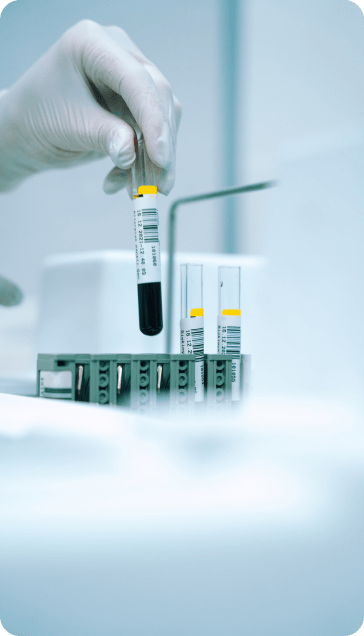
Al Borg Diagnostics
Routine medical checkup
Health is the most precious capital of every person and must be maintained. With good health, a person can work, play, study, and engage in most activities that enable them to live happily. Since maintaining health is a responsibility that falls on the individual, we will talk in the following article about the most important Routine medical checkup.
Routine medical checkup
Periodic tests help evaluate a person’s overall health, allowing the doctor to assess the body, organs, and functions to ensure good health.
Here are some of the most essential Routine medical checkups that should be performed for peace of mind:
Complete Blood Count (CBC)
This test measures the levels of red blood cells, white blood cells, and platelets. It also measures hematocrit and hemoglobin levels. The CBC helps evaluate general health and detect conditions such as anemia, infections, blood clotting problems, and certain immune system disorders.
It can also reveal exposure to toxic substances and assess a person’s nutritional status, such as vitamin B12 deficiency. (3)(4)
Basic Metabolic Panel
This analysis checks the levels of 8 essential compounds in the body, including:
- Creatinine and blood urea nitrogen levels to determine kidney function.
- Blood sugar (glucose) levels to detect diabetes.
- Calcium levels to ensure bone health.
- Electrolyte levels (sodium, potassium, chloride, bicarbonate) to check the fluid balance in the body.
Thus, this analysis helps detect kidney diseases, diabetes, and hormonal imbalances and assess the risk of complications from certain diseases or medications. (4)(5)
Lipid Panel
This test measures cholesterol levels, triglycerides, high-density lipoprotein (HDL) cholesterol, and low-density lipoprotein (LDL) cholesterol. The results of this panel help determine a person’s risk for heart disease. (6)(5)
Thyroid Panel
This panel checks the thyroid gland’s production and its interaction with specific hormones. It measures the levels of thyroid-stimulating hormone (TSH), free thyroxine (T4) in the blood, and free triiodothyronine (T3).
Abnormal levels can indicate conditions such as low blood protein levels, thyroid disorders, or abnormal testosterone and estrogen levels.(4)(5)
Testing for levels of essential vitamins and minerals
Among the necessary tests are analyses of levels of essential nutrients, such as B vitamins, iron, vitamin D, vitamin C, vitamin A, and other minerals and salts. (4)
Other tests
Although less common, the doctor may also request: (4)
- Sexually transmitted infection tests: to diagnose certain diseases such as gonorrhea, chlamydia, herpes, syphilis, and HIV.
- Coagulation panel: to measure the quality and time taken for blood clotting, such as the prothrombin time test and fibrinogen activity test.
- C-reactive protein test: This test indicates the presence or absence of bacterial or viral infection or the occurrence of some autoimmune diseases such as rheumatoid arthritis and others.
- Comprehensive metabolic panel: This panel of tests focuses on levels of all proteins and liver-related substances and all available tests in the basic metabolic panel.
The importance of Routine medical checkups
Routine medical checkup helps assess a person’s overall health status. Doctors can evaluate the body, organs, and functions to ensure well-being.
- Evaluate a person’s overall health status.
- Allow doctors to identify problems early on to take steps to prevent any potential health issues from worsening.
- Predict disease risk factors, allowing lifestyle and dietary modifications to improve health and prevent illness.
How often should a Routine health checkup be performed?
The number of times a person should undergo a Routine medical checkup depends on several factors, including:
- Health status.
- Age.
- Gender.
- Work environment.
- Personal and family medical history.
Although health experts recommend regular medical check-ups as follows:
- 18 – 35 years: at least every 5 years.
- 40 – 49 years: at least every 2 – 3 years.
- 50 and above: every 1 – 2 years.
However, depending on the factors above, the doctor may request more or fewer routine tests. (1)(2)(4)
Therefore, do not hesitate to visit any branch of Al-Borg Diagnostics to perform the necessary routine tests to ensure your health. The laboratory offers a variety of packages, including Male Executive Check Up, Female Executive Check Up, and other packages that provide a wide range of important tests.
References:
- https://www.medbroadcast.com/procedure/getprocedure/periodic-health-examination
- https://www.vinmec.com/vi/news/health-news/general-health-check/periodic-health-check-how-often/
- https://middlesexhealth.org/laboratory-services/common-lab-tests
- https://www.healthline.com/health/blood-tests#top-blood-tests
- https://www.baxterregional.org/medical-services/lab-pathology/common-lab-tests/
- https://www.uwlax.edu/globalassets/offices-services/student-health-center/common-laboratory-tests-explained-002.pdf




